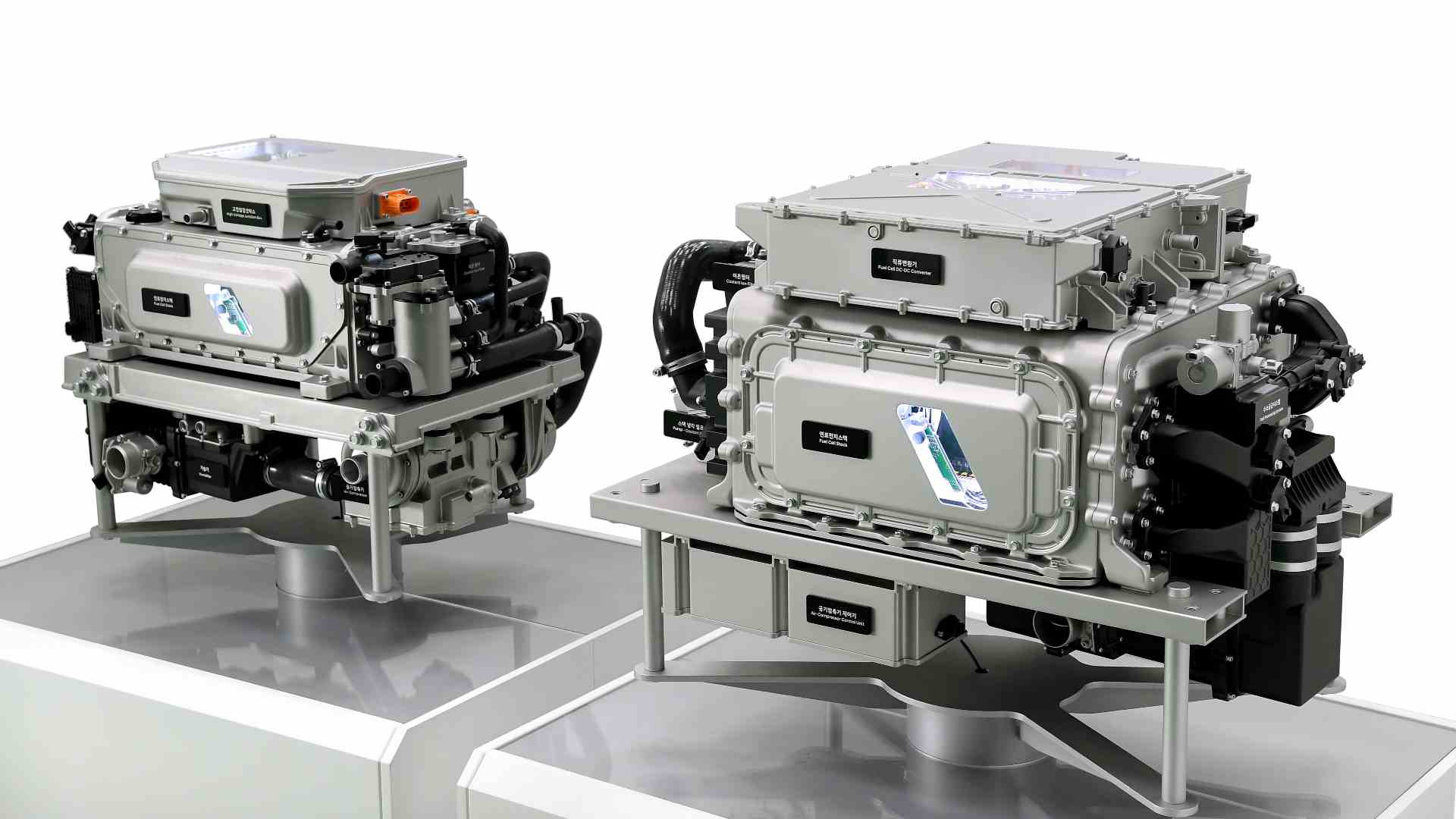At a time when battery electric vehicles (BEVs) are finding increasing acceptance in global markets, Hyundai has chosen to double down on an alternative to BEV technology – hydrogen fuel-cell technology. Citing a sharp rise in natural disasters and growing environmental troubles, Hyundai believes furthering the reach of hydrogen is key to saving the planet, with group chairman Euisun Chung ending his address with an almost ominous statement – “This may be the last train to a hydrogen society and time is running out." Before this specified time runs out, Hyundai has sprung into action with its Hydrogen Vision 2040 strategy, which promises to bring hydrogen fuel-cell technology to all forms of mobility – including not just fuel-cell electric vehicles for private and commercial uses, but also to other forms of transport including trains, trams and air mobility solutions. To that end, Hyundai used its Hydrogen Wave platform to unveil its third-generation hydrogen fuel-cell powertrain, which will go into mass production in 2023. Set to be offered in two versions (100 kW for passenger vehicles and 200 kW for commercial vehicles), the third-gen fuel-cell powertrain’s costs have been lowered by more than 50 percent compared to the second-gen powertrain, and it’s also 30 percent smaller, which means it’ll ease packaging constraints. [caption id=“attachment_9945411” align=“alignnone” width=“1920”]
 (L-R) The third-generation fuel-cell powertrain (100 kW and 2o0kW) is expected to debut in the updated Hyundai Nexo in 2023. Image: Hyundai[/caption] Having worked to bring down the total development cost of a hydrogen FCEV powertrain by as much as 98 percent over the last 20 years, Hyundai is now targeting a 2030 deadline to help FCEV powertrains reach price parity with BEVs.
(L-R) The third-generation fuel-cell powertrain (100 kW and 2o0kW) is expected to debut in the updated Hyundai Nexo in 2023. Image: Hyundai[/caption] Having worked to bring down the total development cost of a hydrogen FCEV powertrain by as much as 98 percent over the last 20 years, Hyundai is now targeting a 2030 deadline to help FCEV powertrains reach price parity with BEVs.
‘Last train to a hydrogen society’, says Hyundai as it debuts third-gen fuel-cell tech, 680 hp FCEV prototype
tech2 News Staff
• September 8, 2021, 10:14:40 IST
As part of its Hydrogen Vision 2040 strategy, Hyundai aims to help hydrogen fuel-cell vehicles achieve price parity with battery electric vehicles by 2030.
Advertisement
)
Hyundai also showcased its first high-performance FCEV during the Hydrogen Wave announcement. Named the Hyundai Vision FK, the prototype – which appears to be based on the Kia Stinger – features a hybrid powertrain setup, incorporating a plug-in battery electric system developed by Rimac Automobili (in which Hyundai holds a stake) as well as a fuel-cell energy converter. With a total output of over 680 hp, the rear-wheel-drive Vision FK is claimed to go from 0-100 kph in under four seconds, and is said to have a range of 600 kilometres. Interestingly, Hyundai R&D chief Albert Biermann noted the Vision FK was “technical overkill”, and that its packaging is “extremely complicated”. As it stands, the Vision FK doesn’t appear to be at the level of performance BEVs have already attained, and sounds like a pretty complex package on the whole. Also revealed at the forum was a fuel-cell ‘Full-Flat System’ that lowers stack height by 25 cm, which can be used across different vehicle types (PVs, CVs and trams) by mounting the system to either the upper or lower body of the vehicle.
End of Article